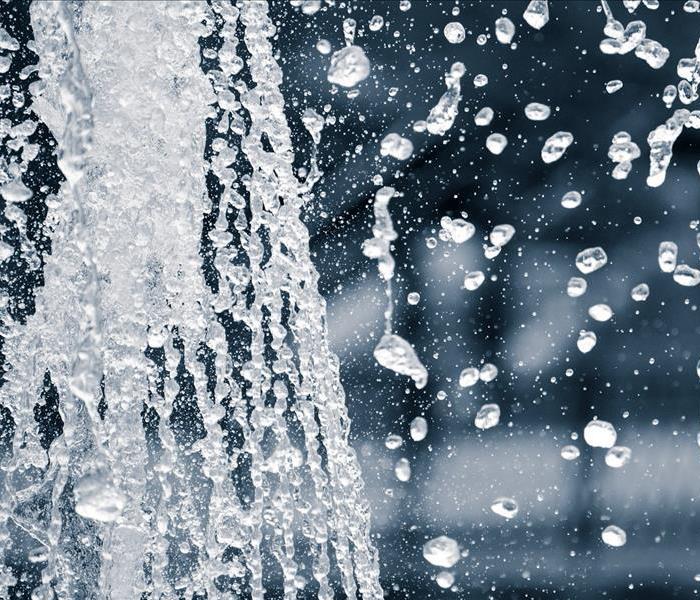Protecting your home from water damages.
8/12/2022 (Permalink)
Water damage is one of the most common and costly disasters that can befall your home, costing billions of dollars each year. Protect your most important property from water damage with the right insurance coverage and the following practical advice. Water damage and insurance Different types of water damage are covered under different types of policies. Homeowners and renters insurance offers coverage for clogged pipes, wind-driven rain, and damage caused by ice dams on your roof. Generally, water that comes in from the top down—like rain and sprinklers—is covered under a standard homeowner's policy. Some policies cover sewer and drain backups, but many do not; however, you can purchase sewer backup to cover homeowners or renters. Water that flows from the bottom up—for example, an overflowing river—is usually covered by separate flood insurance, which can be purchased through the National Flood Insurance Program (NFIP) and some private insurers. If you live in a flood zone, learn more about suitable coverage. Proper home maintenance is one of the best ways to prevent damage from water disasters. Prevent basement water leaks Close your cellar. Basement water is usually caused by cracks in building foundations or floor slabs. If you notice water seeping after a heavy rain when you have no problems, it could mean that your previously waterproof concrete floors and basements are damaged. Coating weak spots with waterproofing will prevent leaks. Make sure the water drains away from the building. The drain is reinforced because the ground settles so that the water flows towards the building. After a storm, and especially if the soil is saturated, rainwater that flows into the building can pass through any cracks outside the foundation wall. Install the check valve. Although less common than other causes of basement water, sewer backups are messy. Learn more about your sewer responsibilities and install and maintain a check valve that allows sewage to flow but not back up. Maintain and understand your indoor plumbing systems Check equipment hoses and faucets. Get into the habit of checking the hoses that lead to water heaters, dishwashers, washing machines and refrigerators every year. You can also invest in a water leak monitoring and shut-off system that will alert you to potential leakage problems. Replace any hoses with cracks or leaks immediately and replace them all every five to seven years. Control showers and baths. Check the seals and gaskets around showers and tubs to make sure they are watertight and seal if necessary. When you are away on holiday, turn off the water supply to the washing machine and do not leave the house when the washing machine or dishwasher is running. Know the location of the main water shut-off valve in your home. A burst hose or burst pipe can send water into your home. Finding and closing a water line quickly can save stress, money and time. Install an emergency drain valve in your water system. This will protect against increased pressure due to frozen pipes and help prevent pipe bursts. Check water and heating pipes. Look carefully for cracks and leaks and make the necessary repairs immediately. Repair and protect the exterior of your home Close and seal windows to prevent water from escaping. Check your roof for missing, damaged or outdated shingles and make any necessary repairs. Check your drain. Remove debris that may have accumulated in downspouts and rain gutters. Place downspouts to direct water away from the house. Check sprinklers and irrigation systems to make sure they are not causing water damage to the walls and foundation of the house. Turn off and drain outdoor faucets to protect them from frozen pipes. Install gutter guards to prevent gutters from clogging and prevent water from draining away from the house instead of collecting on the roof. Protect your property Store off-season and other large items in waterproof containers, especially in areas with plumbing or moisture-prone areas such as basements and attics. Do not store valuables or memorabilia where there is a risk of water damage. Water and moisture also carry the threat of fungal damage. Store items on floorboards in basements. In case of water seepage or sewer backup, they're less likely to get damaged. Keep an up-to-date home inventory. Having a comprehensive list of your possessions will save time, trouble, and stress in case of loss from water damage.






 24/7 Emergency Service
24/7 Emergency Service
